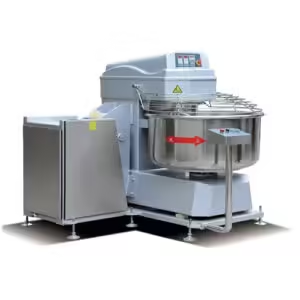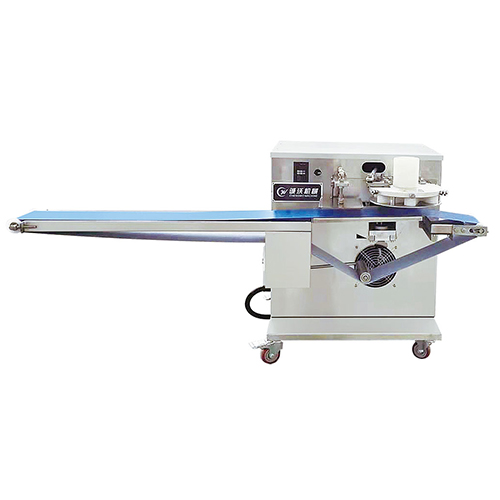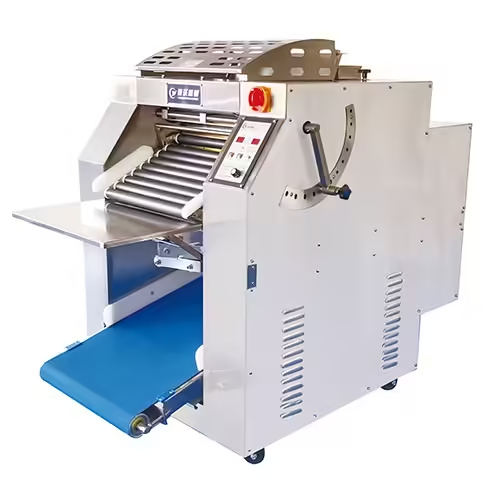


Food machines have evolved from simple kitchen tools to powerful, intelligent devices that drive efficiency, enhance quality, and support sustainability in food production. As the global food industry faces challenges in maintaining high-quality standards while increasing production efficiency, automation and intelligent systems have emerged as key solutions. These innovations not only optimize processes but also address consumer demand for safer, healthier, and more sustainable food options.

How much of the meal you had today was “made by machines”? As the food industry continues to develop, automation and intelligence have gradually become industry trends. Food machines is also undergoing constant technological innovations, particularly in enhancing production efficiency and product quality. This has fundamentally changed the way food is produced, driving progress across the entire industry.
In recent years, the global food industry has faced the dual challenges of efficient production and quality assurance. Traditional manual operations not only consume a large amount of labor but also result in inconsistent quality. The emergence of intelligent food machines has provided solutions to these problems. These advanced machines are equipped with high-precision control systems that can automatically perform various steps in the production process, ensuring high-quality standards while significantly improving efficiency.
In recent years, the food machines market has seen strong growth. Its size is expected to increase from $61.81 billion in 2024 to $65.73 billion in 2025, with a compound annual growth rate (CAGR) of 6.3%. This growth can be attributed to the increasing global demand for processed foods, stricter food safety regulations, rising disposable incomes, a focus on operational efficiency, and growing awareness of health and nutrition.
The market is expected to continue growing strongly in the coming years. By 2029, it is projected to reach $83.37 billion, with a CAGR of 6.1%. The growth during this forecast period is driven by smart manufacturing and the integration of Industry 4.0, sustainable environmental solutions, global population growth, customization and flexibility, and rapid urbanization.
Food processing machinery encompasses various equipment, tools, and machines specifically designed for processing, preparing, handling, packaging, and preserving different types of food. These machines are tailored to specific needs and play a crucial role in the processing of a wide range of foods such as baked goods, beverages, and dairy products.
Food machines comes in various types, including flour feeders, dough mixers, dough press machines, dough divider machines, cut tables, and bread forming machines. These machines operate in different modes, such as semi-automatic and fully automatic. For instance, the dough mixer is a specialized machine in the food industry designed to mix ingredients like flour and knead dough. By providing strong mixing power, it ensures that the dough achieves the ideal consistency and elasticity, making it widely used in the production of bread, cookies, cakes, and other baked goods.
Leading companies in the food machines market are focusing on innovative products, including automation solutions to enhance efficiency, improve product quality, and meet the ever-changing demand for safer and more sustainable food processing options. Food processing automation solutions involve the implementation of advanced technologies and systems to streamline, control, and improve various stages of food production, including processing, packaging, and quality control.
For example, the Automatic Bread Production Line produced by Chengwo Food Machinery integrates dough preparation, shaping, fermentation, baking, cooling, and packaging into one advanced system. This line can produce a variety of bread products such as silver thread rolls, honeycomb buns, caterpillar buns, milk buns, French-style small round bread, toast, European-style bread, small round bread, filled burgers, hamburgers, egg milk pies, and yogurt twists (twisted sweet doughnuts). The main control system uses PLC control, with Taiwan FOTEK photoelectric sensors for sheet management. The touchscreen interface achieves modern automation, memory saving for parameters, and a high degree of automation.
The market is increasingly focusing on sustainability, and manufacturers are adopting more eco-friendly equipment to meet environmental standards and the growing consumer demand for green practices. This shift helps reduce waste and energy consumption in production facilities, further enhancing the market’s appeal. As consumer preferences continue to evolve, people are increasingly interested in food that not only meets safety and quality standards but also aligns with ethical and environmental values.
Manufacturers now prioritize innovations that can enhance product quality, speed up production cycles, and reduce environmental impact, while ensuring the final products meet consumers’ expectations.
Of course, food machines are not a magic solution. The right system must be carefully designed and tailored to meet your specific needs.
This is where the right partner comes into play.
At Chengwo, we focus on providing customized automation solutions based on your production goals. We specialize in the research, development, and manufacturing of intelligent baking production lines, food processing equipment, and supporting solutions. As an innovator and high-end equipment manufacturer in China’s baking food machines industry, we have been dedicated to providing global food processing enterprises with higher quality, better cost-performance, and superior performance equipment for over a decade. Whether you’re focused on saving labor, improving product consistency, or enhancing operational efficiency, we are here to help your business grow.
Let’s talk about how food machines can drive the development of your business — not just by saving labor!


